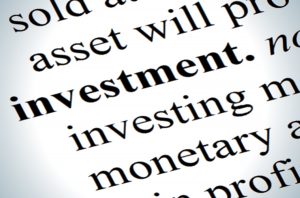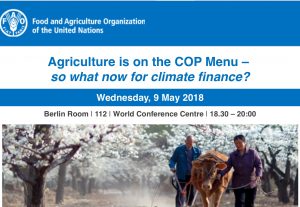 Impact investments are investments made into companies, organizations, and funds with the intention to generate social and environmental impact alongside a financial return, (Global Impact Investing Network (GIIN), 2018).
Impact investments are investments made into companies, organizations, and funds with the intention to generate social and environmental impact alongside a financial return, (Global Impact Investing Network (GIIN), 2018).
GIIN’s 2018 Annual Impact Investor Survey of 229 impact investors with assets under management of $228 billion show found that 1) the market is diverse; 2) the impact investing industry is growing; 3) impact investors demonstrate a strong commitment to measuring and managing impact; 4) overwhelmingly, impact investors report performance in line with both financial and impact expectations; 5) impact investors acknowledge remaining challenges that need to be addressed within the industry.
Good news for the food and agriculture sector, which was the most popular sector among impact investors with 57% of respondents collectively allocating 6 percent of their assets to the sector. And, a compound annual growth rate of 13% over five years resulted for 82 survey respondents tracked since 2013 with strong growth in sectors including the the food and agriculture sector.

 At the UNFCCC level, countries undertake Technology Needs Assessments (TNAs) to determine their climate technology priorities. According to the
At the UNFCCC level, countries undertake Technology Needs Assessments (TNAs) to determine their climate technology priorities. According to the 
 New research published in the journal Nature by Burke, et al. entitled
New research published in the journal Nature by Burke, et al. entitled  Although the primary focus on global climate finance has been on the financial commitments of developed countries to developing countries through the Paris Climate Agreement via the Green Climate Fund, developed countries recognize that they need investment to meet their climate goals too. Today, the UK’s environmental audit committee (EAC) said that if the current trend of decreasing investment in the country’s low-carbon economy continues, it would be unable to meet its pledges on carbon emissions reductions. These decreases have included a more than a 50% decrease in funds going into renewable energy in 2017, following a 10% decrease in 2016.
Although the primary focus on global climate finance has been on the financial commitments of developed countries to developing countries through the Paris Climate Agreement via the Green Climate Fund, developed countries recognize that they need investment to meet their climate goals too. Today, the UK’s environmental audit committee (EAC) said that if the current trend of decreasing investment in the country’s low-carbon economy continues, it would be unable to meet its pledges on carbon emissions reductions. These decreases have included a more than a 50% decrease in funds going into renewable energy in 2017, following a 10% decrease in 2016. The idea of increased private sector investment in the agricultural sector and sustainability has been trending this week.
The idea of increased private sector investment in the agricultural sector and sustainability has been trending this week.
 CCAFS’ Alberto Millan, who is working on finance innovation for the organization, participated on a panel yesterday evening in Bonn. The panel entitled, Agriculture is on the COP menu…so what now for climate finance?, was a side event at the SBSTA’s meetings co-hosted by FAO, IFAD, WFP and the panelists in addition to CCAFS represented two governments (Kenya and Mongolia), a civil society organization (Action Aid) and two funders (GCF and GEF).
CCAFS’ Alberto Millan, who is working on finance innovation for the organization, participated on a panel yesterday evening in Bonn. The panel entitled, Agriculture is on the COP menu…so what now for climate finance?, was a side event at the SBSTA’s meetings co-hosted by FAO, IFAD, WFP and the panelists in addition to CCAFS represented two governments (Kenya and Mongolia), a civil society organization (Action Aid) and two funders (GCF and GEF). As I was conducting research for my literature review, I learned that climate finance accounting is a challenge. There is an absence of consistent accounting rules to assess progress of financial flows towards the goals outlined in the Paris Agreement. This has been recognized by the UNFCCC, who has been working on developing a common approach for climate finance accounting. Governments are to agree on new rules to govern climate finance accounting at the 24th Conference of Parties (COP24) in Katowice, Poland this year.
As I was conducting research for my literature review, I learned that climate finance accounting is a challenge. There is an absence of consistent accounting rules to assess progress of financial flows towards the goals outlined in the Paris Agreement. This has been recognized by the UNFCCC, who has been working on developing a common approach for climate finance accounting. Governments are to agree on new rules to govern climate finance accounting at the 24th Conference of Parties (COP24) in Katowice, Poland this year. The Bonn Climate Change Conference is starting tomorrow, April 30, and runs through May 10. I am delighted to see events to scale up climate finance for mitigation and adaptation on the May 7 and 8 agenda!
The Bonn Climate Change Conference is starting tomorrow, April 30, and runs through May 10. I am delighted to see events to scale up climate finance for mitigation and adaptation on the May 7 and 8 agenda!